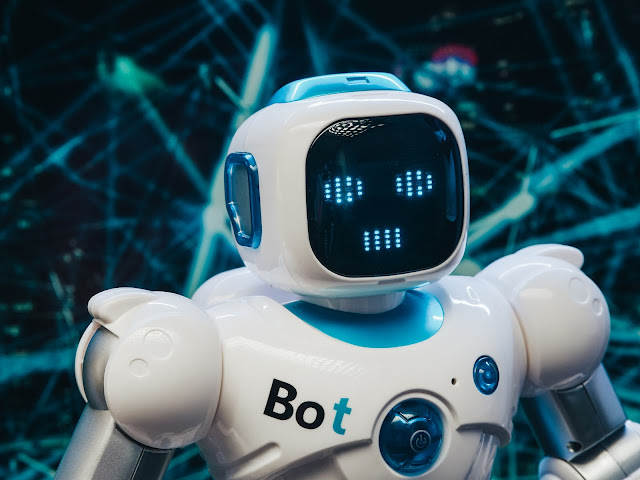Artificial Intelligence: A Comprehensive Guide to Understanding the Basics, Applications, Benefits, and Challenges
Artificial Intelligence Understanding the Basics
Artificial intelligence( AI) is a fleetly advancing field that's changing the way we live and work. In this composition, we will explore the basics of AI, including how it works, its operations, and the benefits and challenges of this arising technology.
What's Artificial Intelligence?
Artificial intelligence is the capability of machines to perform tasks that would generally bear mortal intelligence. This includes tasks similar as literacy, decision- timber, and perception. AI can be used to dissect data, fete patterns, and make prognostications grounded on that data.
There are two types of AI narrow or weak AI, and general or strong AI. Narrow AI is designed to perform specific tasks, similar as speech recognition or image bracket. General AI, on the other hand, is able of performing any intellectual task that a human can.
How Does Artificial Intelligence Work?
AI workshop by using algorithms to reuse large quantities of data and identify patterns. This is known as machine literacy, and it's a critical element of AI. Machine literacy algorithms learn from the data they're fed, making prognostications and opinions grounded on that data.
One of the most popular forms of machine literacy is deep literacy. This type of machine literacy uses neural networks, which are modeled after the mortal brain. Neural networks are made up of layers of connected bumps, and each knot processes a small quantum of data. As the data flows through the layers, the network learns to identify patterns and make prognostications.
Another important element of AI is natural language processing( NLP). NLP allows machines to understand and interpret mortal language. This is used in operations similar as chatbots, which can respond to stoner queries in natural language.
Operatautomate Artificial Intelligence
AI has numerous operations across colorful diligence, including healthcare, finance, and manufacturing. Then are a many exemplifications
• Healthcare: AI is being used to develop new medicines and treatments for colorful conditions. It's also used to dissect medical images and identify patterns that may indicate the presence of a complaint.
• Finance: AI is used in finance to descry fraud and make investment opinions. It can dissect vast quantities of fiscal data and make prognostications grounded on that data.
• Manufacturing: AI is used in manufacturing to optimize product processes and reduce waste. It can also be used to cover outfit and prognosticate when conservation is needed.
• client service: AI- powered chatbots can give guests with quick and accurate responses to their queries.
• Transportation: AI is being used to develop independent vehicles, which have the eventuality to reduce accidents and increase effectiveness in the transportation sector.
• Education: AI can be used to epitomize literacy gests for scholars, furnishing them with acclimatized coffers and feedback.
Benefits of Artificial Intelligence
There are numerous benefits of AI, including
• Advanced effectiveness: AI can automate numerous tasks, which can lead to increased effectiveness and productivity.
• More decision- making: AI can dissect vast quantities of data and make prognostications grounded on that data. This can lead to better decision- making in colorful diligence.
• Advanced client service: AI- powered chatbots can give guests with quick and accurate responses to their queries.
• Enhanced safety: AI can be used to cover outfit and descry implicit safety hazards before they do.
• Cost savings: AI can reduce costs by automating tasks that would else bear mortal labor.
Challenges of Artificial Intelligence
While AI has numerous benefits, there are also several challenges that must be addressed. Some of these challenges include
• Bias: AI algorithms can be poisoned if they're trained on data that contains impulses. This can lead to illegal and discriminative issues.
• Senterprises: AI algorithms frequently bear large quantities of particular data to serve. This can raise enterprises about sequestration and data security.
• Job: relegation AI has the implicit to automate numerous jobs.



No comments